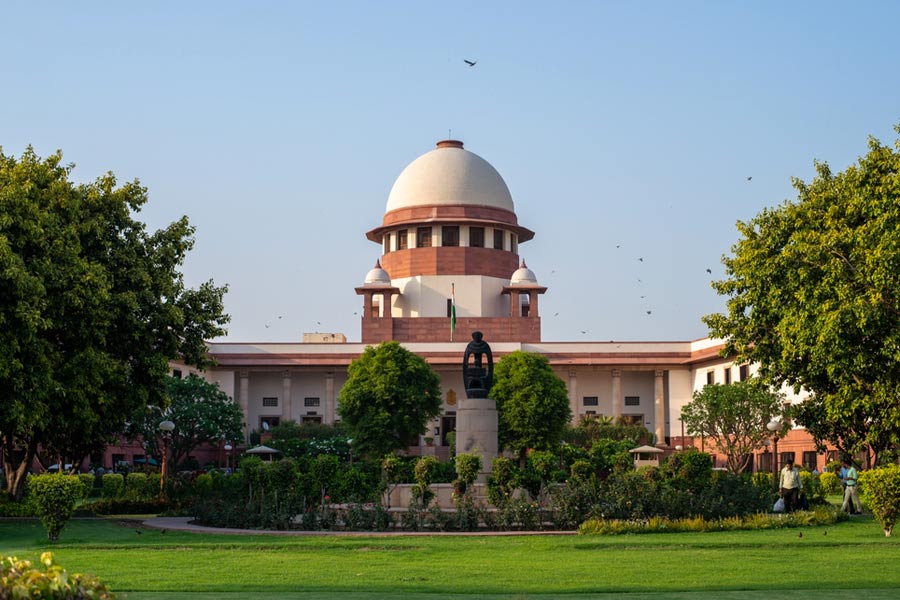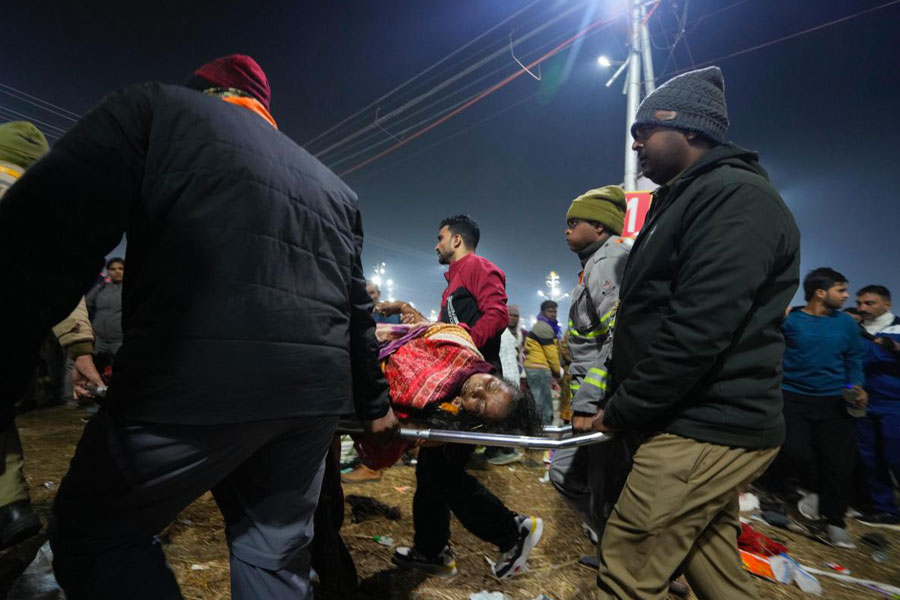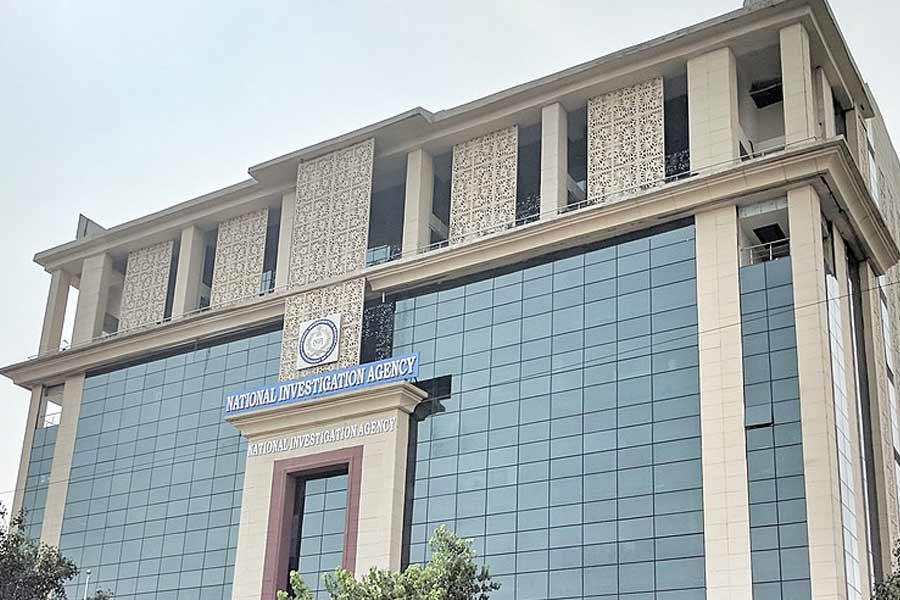The Supreme Court on Friday sought a report from the AIIMS medical board on whether the 26-week foetus of a married woman, who wants her pregnancy terminated medically on grounds of her ill health, is suffering from any abnormality.
The apex court took note of the submissions of the petitioner's counsel that the woman is undergoing treatment for post partum pscyhosis since October 10 last year.
A bench headed by Chief Justice D Y Chandrachud asked the medical board to apprise it about whether extending the pregnancy to its full term will get jeopardised by medicines which may be prescribed for the alleged condition from which the woman is stated to be suffering.
The bench, also comprising Justices J B Pardiwala and Manoj Misra, said medical professionals at the All India Institute of Medical Sciences (AIIMS) would be at liberty to carry out their own diagnosis with regard to the woman's medical condition and indicate their own independent evaluation of the mental and physical condition of the petitioner.
"Upon doing so, we request the doctors to apprise this court if the petitioner is found to be suffering from post partum psychosis and whether any alternate administration of medication consistent with the pregnancy would be available so as to neither jeopardise the well-being of the petitioner or the fetus in that regard," the bench said.
The bench was hearing arguments on the Centre's application seeking recall of the apex court's October 9 order permitting the 27-year-old woman, a mother of two, to undergo termination of pregnancy at AIIMS.
It said bearing in the mind the provisions of the Medical Termination of Pregnancy (MTP) Act, 1971, it would be necessary to have a report of the medical board specifically on the aspects, including, "Whether the fetus is suffering from any abnormality as provided by sub-section 2(b) of section 3 of the Act". "Though the earlier report mentions that the fetus is normal, nonetheless, in order to place the matter beyond doubt, we request a further report to be submitted on the above aspect," it said, adding, the exercise be carried out during the course of the day.
Under the MTP Act, the upper limit for the termination of pregnancy is 24 weeks for married women, special categories including survivors of rape, and other vulnerable women such as the differently-abled and minors.
The apex court is faced with a conundrum over whether to allow the woman to terminate her 26-week pregnancy.
The bench observed that during the hearing, the petitioner's counsel submitted a bunch of prescriptions in support of his submission that she is undergoing treatment for post partum pscyhosis at a clinic since October 10, 2022.
It noted that a handwritten prescription dated November 7, 2022, which contains instructions for administering five drugs, does not specify the nature of the ailment for which the medicines have been prescribed.
"Similarly, all other prescriptions, apart from containing the name of the petitioner and the date of the prescription, are silent in regard to the condition for which she was sought to be treated," the bench said.
While posting the matter for hearing at 10:30 AM on October 16, it said the prescriptions may be forwarded by Additional Solicitor General (ASG) Aishwarya Bhati, representing the Centre, to the doctors at AIIMS and the woman shall appear before the medical board preferably at 2 pm on Friday.
The apex court had on Thursday asked Bhati and the petitioner's lawyer to talk to the woman about the possibility of retaining the pregnancy for a few weeks more so that a healthy child could be born.
During the hearing on Friday, the ASG told the bench, "Unfortunately, we have not been able to persuade her (petitioner). She is still vulnerable. My lords will have to decide this." She said the MTP Act, as amended, is a "pro-choice legislation" but "pro-choice can't be read to mean extinguish life".
"We are a pro-choice country. We will proceed on that basis," the bench said, adding that the life of the woman is given paramount importance under the law.
"One thing is very clear, we are far ahead of other countries… Our law is far ahead, very liberal and forward looking," the CJI observed.
The CJI recalled an incident in Ireland where a woman of Indian origin had died after she was not allowed to terminate her pregnancy as the Irish law did not permit it then.
Bhati said in this case, the doctors' opinion is that the foetus is viable and has a chance to survive.
The petitioner's counsel told the bench that after delivering her second child in September last year, the woman developed symptoms of post partum psychosis and started receiving treatment.
While hearing the matter on Thursday, the bench had observed "we cannot kill the child" and stressed on the need to balance the rights of the unborn child with the right to autonomy of the mother who has sought to abort the healthy foetus on account of her bad health.
The issue arose after one of the doctors of the AIIMS medical board, which examined the woman and filed a report dated October 6 in the apex court, sent an e-mail on October 10 saying the foetus had a strong possibility of survival if the pregnancy was terminated at this stage.
The matter came up before the CJI-led bench after a two-judge bench on Wednesday gave a split verdict on the Centre's plea for recall of its October 9 order granting permission to the woman to terminate her pregnancy.
Except for the headline, this story has not been edited by The Telegraph Online staff and has been published from a syndicated feed.










